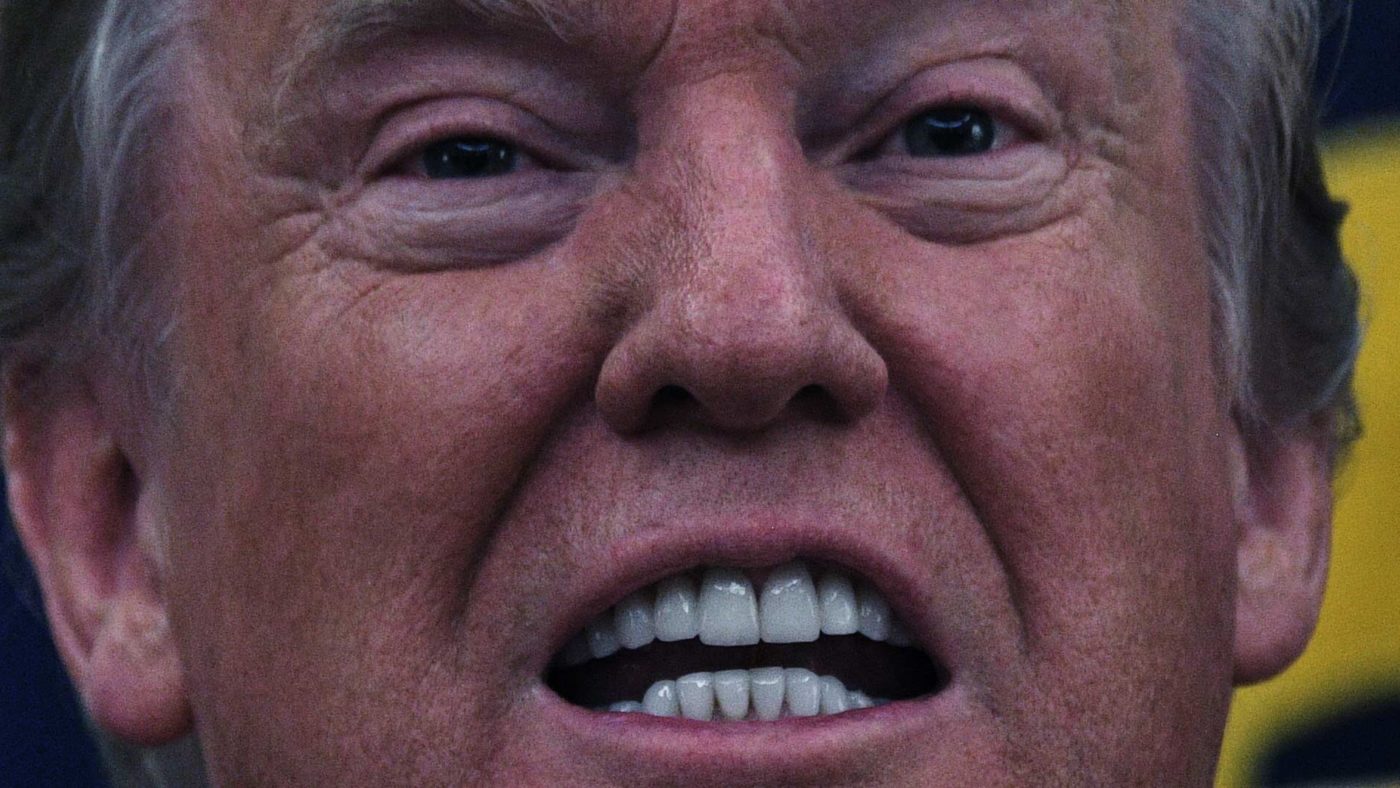We are so used to Donald Trump being Donald Trump – an affliction of which he never tires but that exhausts the rest of us – that even his capacity to outrage us is subject to the laws of diminishing returns. As the anniversary of his election approaches, it is dispiriting to think there are at least three more years of this. He is a political calamity, of course, utterly unfit for the office he holds but the vulgarity of this carnival-barker is, if anything, even more oppressive than his politics.
Even so, Trump retains his capacity to astonish. His ongoing war with the American media might have been almost amusing once. But the joke has gone far enough. Earlier this week Trump told the world – via Twitter, of course – that the “Network news has become so partisan, distorted and fake that licenses must be challenged and, if appropriate, revoked. Not fair to public!” This, it should be noted, is less a demonstration of Trump’s bullying but of his impotence. Even the President cannot dismantle the first amendment to the United States constitution. But even as he pleads for unearned sympathy – nobody puts the Donald in the corner, don’t you know – the behaviour of the American president still matters.
The President of the United States helps set the normal parameters of civilised or accepted discourse. Where he leads, others will follow. His views validate their views. So this is more than just another instance of Trump being Trump and therefore neither surprising nor shocking but, instead, our grisly new normal.
The media may be, indeed always has been, imperfect but it’s the series of messengers you have. You might wish it better, it’s also the best you have. The question then becomes how to make it better. And here the haters have nothing to say. The triumph of their preferences is less important than the ruin of your own. In the culture wars, you see, victory is a matter of provocation. The only thing that really counts is that the right – which is to say, the ghastly – people are unhappy.
You don’t need to be a centrist dad to appreciate Left and Right are both at it and that they have more in common than whatever divides them. In Britain, they hate the media too, just different parts of it. Depending upon whom you’re being bored by at any given moment, it’s all the fault of the Daily Mail and the Murdoch press or, instead, the BBC is destroying all that’s good about Britain.
Certain commonalities may be observed. In each instance, the media is holding the country back. If it weren’t for the right-wing press, the Left avers, Britain would be a kinder, gentler, more decent place more ready to see that social democracy is the only path to national improvement. And if it weren’t for the BBC and the “liberal elite”, so the Right believes, the road to Brexit would be garlanded with rose petals as we march to our triumphant, newly independent, future.
The BBC, like the rest of the Remainer Media, has an obligation to be more optimistic. Why, then, does it insist upon “talking Britain down”? It can’t be blind to the good news out there so the absence of these cheery dispatches can only mean one thing: a concerted effort to corrupt the idea of Brexit before it has even happened.
This, it should be obvious, is a kind of psychological inoculation, the means by which Brexiteers can protect themselves against any Brexit-related disappointment. In the unlikely event there’s anything sub-optimal about leaving the EU, it won’t be fair to pin responsibility upon those who agitated for it. On the contrary, the blame should be shouldered by a liberal media establishment determined to wreck this great liberating project.
This corruption is more widespread than you might think. As John Redwood observed this week, it is past time the Treasury issued “more realistic, optimistic forecasts”. Reality, you see, is only real in so much as it fits your preferred prejudices. Trump may be the worst, but the differences between his excesses and those of our own carnival-barkers are of degree not kind.
No one has ever made a buck by arguing the press is perfect. We make mistakes and sometimes they are serious ones. A media that, collectively, is searching for a viable business model is one that has simultaneously never been more widely-read or weaker.
That makes it an easy mark for populists and frauds on Left and Right alike. “Fake news” is useful to them not because it is fake but because it helps undermine and discredit what isn’t fake. If you can’t trust this, can you really trust that? Russia Today and the other organs of Vladimir Putin’s counter-news establishment sell Moscow’s line by telling you it’s just one version of the truth, no better but certainly no worse than any other. And who, in the end, is to say what’s really true anyway? It’s all just a matter of opinion and interpretation.
And since social media – especially Facebook – specialises in telling us what we want to hear, you can see why we’re all building our own bubbles. Our news feeds are gathered from dozens of sources these days but it’s the kind of diversity that insists upon a singular and constant point of view. No wonder confirmation bias has become the news business’s reserve currency.
I’d like to say it won’t be like this forever, that we can, collectively, choose a different path. But as matters stand that seems unlikely. Again and again I find myself drawn to the title of Peter Pomarensev’s account of his adventures in Putin’s Russia: “Nothing is true and everything is possible”. That, increasingly, seems a chilling motto for our times.


